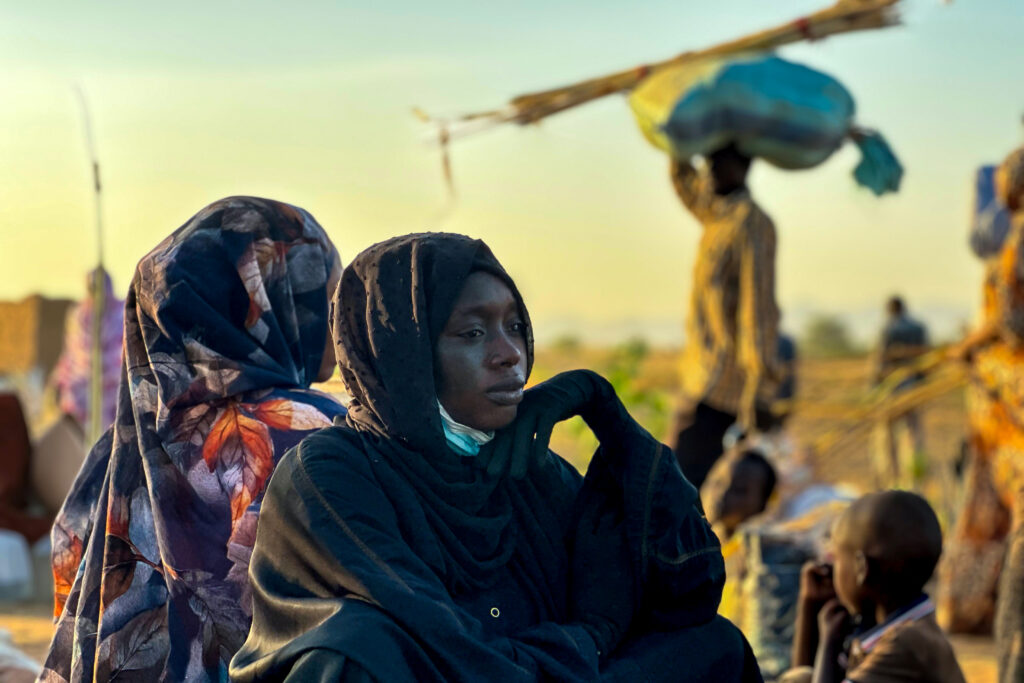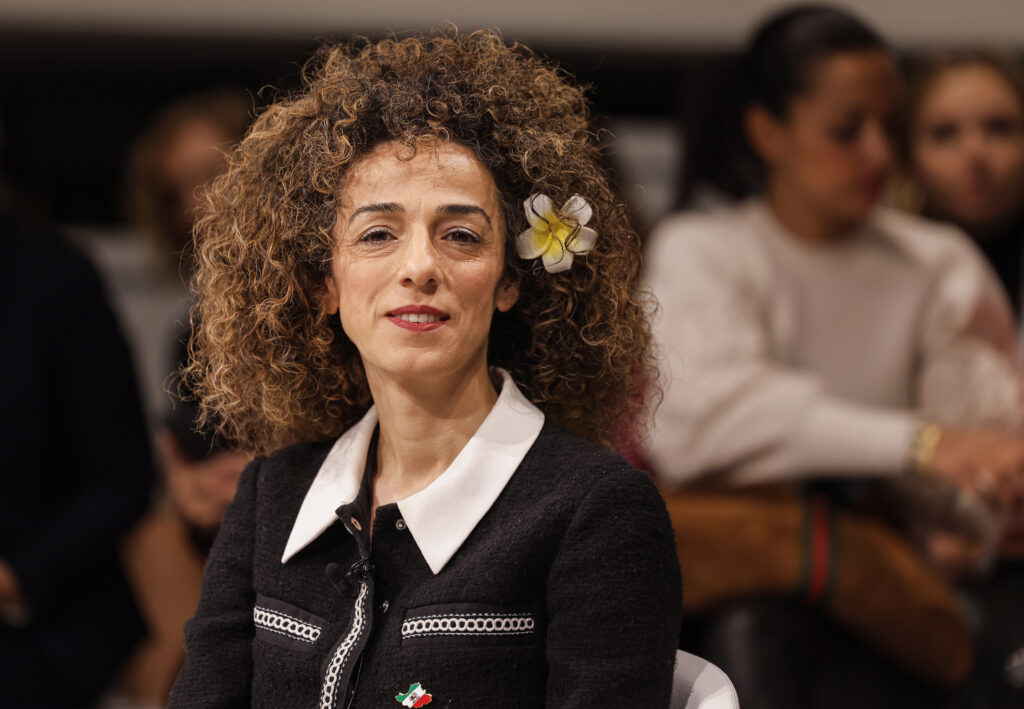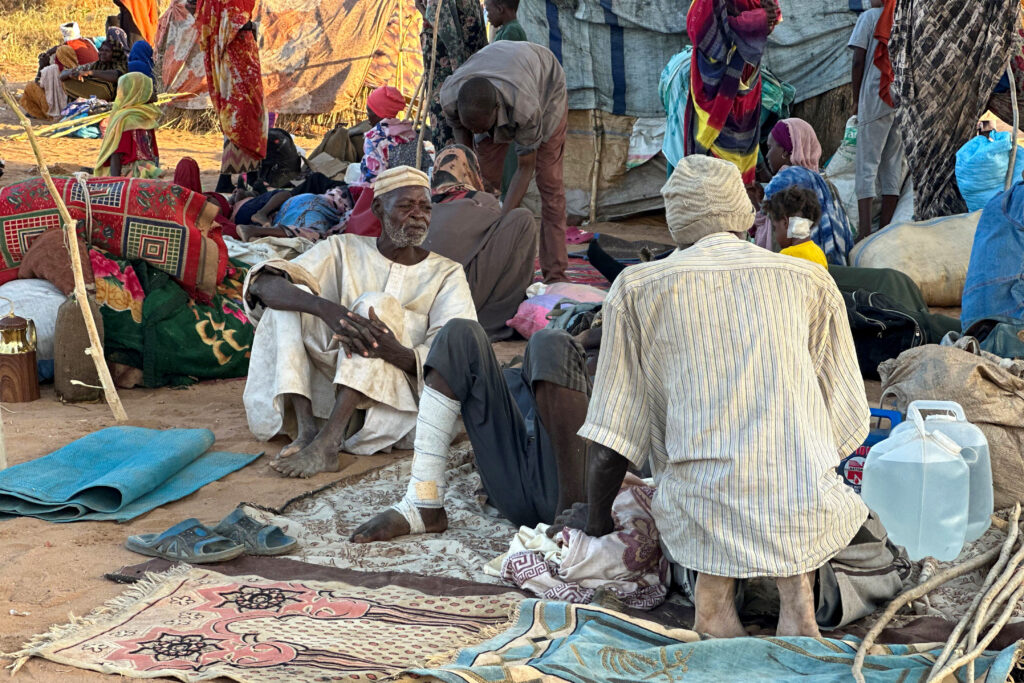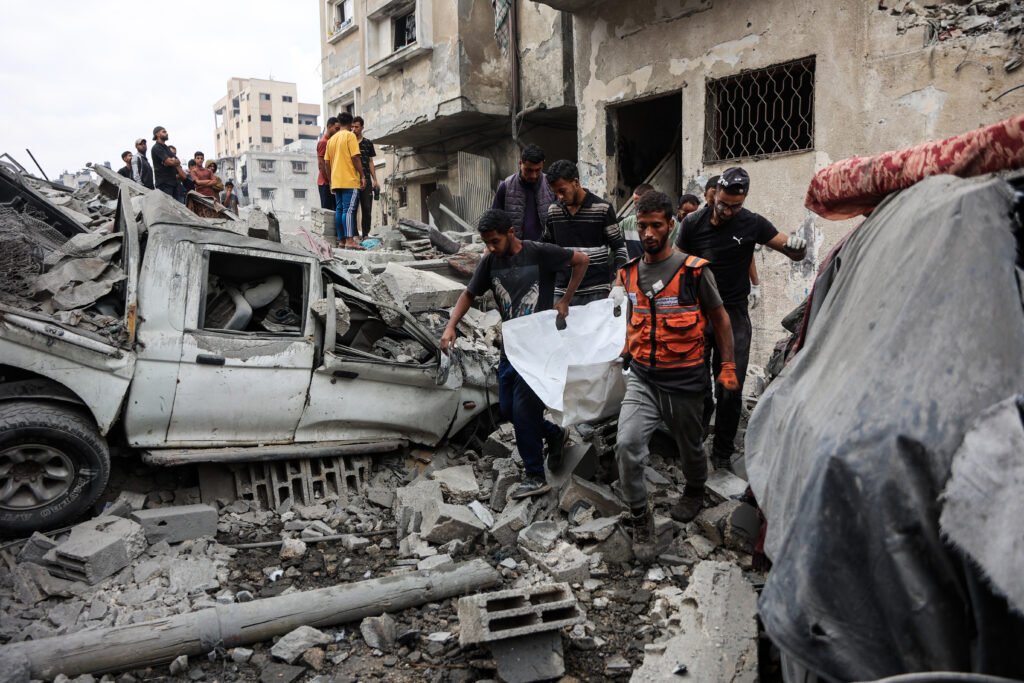AFP Asia Business
UN calls for end to Sudan siege after mass hospital killings
UN chief Antonio Guterres called for an immediate end to military escalation in Sudan on Thursday after reports that more than 460 people were shot dead in a maternity hospital by paramilitary forces.Mohammad Hamdan Daglo, the head of the Rapid Support Forces (RSF) paramilitaries which recently seized the city of El-Fasher from army forces, has vowed the country would be unified by “peace or through war”.The capture of El-Fasher, the last army holdout in the vast western region of Darfur, comes after more than 18 months of brutal siege, sparking fears of a return to the ethnically targeted atrocities of 20 years ago.Accusations of mass killings have mounted, with the World Health Organization (WHO) condemning reports that 460 people were killed at the Saudi Maternity Hospital, the last partially functional hospital in El-Fasher.The WHO said the hospital was on Sunday “attacked for the fourth time in a month, killing one nurse and injuring three other health workers”. Two days later, “six health workers, four doctors, a nurse and a pharmacist, were abducted” and “more than 460 patients and their companions were reportedly shot and killed in the hospital,” the organisation said.Guterres said in a statement he was “gravely concerned by the recent military escalation” in El-Fasher, calling for “an immediate end to the siege & hostilities”.International powers have struggled for months to mediate an end to the fighting between the paramilitaries and the regular army, raging since April 2023.Daglo’s paramilitaries now control most of western Sudan, Africa’s third-largest country, while the regular army under Abdel Fattah al-Burhan dominates the north, east and centre.While the army regained full control over the capital Khartoum in March, the RSF has set up a parallel administration in the southwestern city of Nyala.Analysts warn that the country is now de facto partitioned and may prove very hard to piece back together.- ‘Systemic killing’ -Daglo said in a speech Wednesday that he was “sorry for the inhabitants of El-Fasher for the disaster that has befallen them” and that civilians were off limits.The RSF — descended from Janjaweed militias that attacked non-Arab communities in Darfur two decades ago — has again been accused of carrying out ethnic genocide against civilians, with graphic videos circulating on social media.Sudanese Arabs are the dominant ethnic group in the country, but the majority in Darfur are from non-Arab communities such as the Fur people.The Sudanese government has accused the RSF of killing more than 2,000 civilians and targeting mosques and Red Crescent aid workers in the city.Yale University’s Humanitarian Research Lab said Tuesday that satellite imagery showed “mass killing events” with “corroboration of alleged executions around Saudi Hospital and a previously unreported potential mass killing at an RSF detention site at the former Children’s Hospital in eastern El-Fasher”.It said there was also ongoing “systematic killing” at one location outside the city.The lab had warned earlier of a “systematic and intentional process of ethnic cleansing” of non-Arab communities.- Thousands displaced -The seizing of El-Fasher has left the RSF in control of a third of Sudan, with fighting now concentrated in the central Kordofan region.On Tuesday, the International Federation of Red Cross and Red Crescent Societies reported five Sudanese volunteers killed and three missing in Bara, a city in Kordofan captured by the RSF last week.More than 33,000 people have fled El-Fasher since Sunday for the town of Tawila, about 70 kilometres (40 miles) to the west, which has already welcomed more than 650,000 displaced people.AFP images from Tawila showed displaced people, some of them with bandages, carrying their belongings and setting up temporary shelters.Around 177,000 people remain in El-Fasher, which had a population of more than one million before the war.Access routes to El-Fasher and satellite-based communications in the city remain cut off — though not for the RSF, which controls the Starlink network there.- Truce talks stalled -Sudan’s war has killed tens of thousands of people, displaced millions and triggered the world’s largest displacement and hunger crisis.The so-called Quad group — comprising the United States, Egypt, the United Arab Emirates and Saudi Arabia — held talks over several months towards securing a truce. But those talks have reached an impasse, an official close to the negotiations said, with “continued obstructionism” from the army-aligned government.While diplomats have preached peace, outside powers, including Quad members, have been accused of interfering in the conflict.
US jails two men for 25 years over plot to kill Iranian-American reporter
A US judge jailed two men for 25 years each Wednesday for a plot allegedly hatched by Tehran to kill Iranian-American journalist Masih Alinejad, her team confirmed to AFP.Rafat Amirov and Polad Omarov, both members of an eastern European criminal gang, orchestrated a failed plot to assassinate campaigning reporter Alinejad.”They wanted to see me dead on my porch in Brooklyn and thanks to the law enforcement agencies, I am alive and Ali Khamenei, the supreme leader (of Iran), is humiliated,” Alinejad said outside a Manhattan courthouse following the sentencing, brandishing a sunflower.”I was nervous but at the same time very empowered to speak the truth,” she added before dancing and singing in Farsi.Amirov and Omarov were both jailed for 25 years, a spokesman for Alinejad said following the hearing, after prosecutors had sought 55-year terms for each, according to court filings.According to the Justice Department, the jailed men, members of the eastern European crime network, were “contracted” by Ruhollah Bazghandi — identified as a brigadier general in Iran’s Revolutionary Guards — and other members of his network to murder Alinejad.In July 2022, a man hired to carry out the assassination was arrested near Alinejad’s New York home with a loaded AK-47 assault rifle, the court heard over the two week trial.The 49-year-old Alinejad, one of the most prominent dissident campaigners against Iranian authorities, for years has pushed for the abolition of the obligatory headscarf in Iran under the banner of “MyStealthyFreedom.”She left Iran in 2009.Charges were unsealed in October 2024 against Bazghandi, a former intelligence officer.Three other Iranians with “connections to the government of Iran” — Haj Taher, Hossein Sedighi and Seyed Mohammad Forouzan — were indicted over the affair.The three are not in US custody and are believed to be in Iran. They face charges of conspiracy to commit murder-for-hire and money laundering.Tehran has routinely rejected similar US accusations about alleged plots to kill American officials or politicians in the past.The United States has also accused Iran of seeking to assassinate US officials in retaliation for Washington’s killing of Revolutionary Guards commander Qasem Soleimani in 2020.The State Department previously announced a $20 million reward for information leading to the arrest of the alleged Iranian mastermind behind a plot to assassinate former White House official John Bolton.
Paramilitary chief vows united Sudan as his forces are accused of mass killings
The head of the Rapid Support Forces paramilitaries vowed on Wednesday Sudan would be unified by “peace or through war” and expressed sympathy after reports of mass killings by his group in the newly captured El-Fasher.The RSF took the city, the last army holdout in the vast Darfur region of western Sudan, after more than 18 months of brutal siege, sparking fears of a return to the ethnically targeted atrocities of twenty years ago.Accusations of mass killings have mounted, with the World Health Organization condemning reports that 460 people were killed at a maternity hospital.Sudanese Arabs are the dominant ethnic group in the country, but the majority in Darfur are from non-Arab communities such as the Fur people.International powers have struggled for months to mediate an end to the fighting between the paramilitaries and the regular army, raging since April 2023.And on Thursday, Mohammad Hamdan Daglo vowed to reunify the country by force if necessary.”The liberation of El-Fasher is an opportunity for Sudanese unity, and we say: Sudanese unity through peace or through war,” he declared.Daglo’s paramilitaries now control most of western Sudan, Africa’s third largest country, while the regular army under Abdel Fattah al-Burhan dominates the north, east and centre.While the army regained full control over the capital Khartoum in March, the RSF has set up a parallel administration in the southwestern city of Nyala.Analysts have warned that the country is now de facto partitioned and may prove very hard to piece back together. – Hospital killings -Daglo said in a speech shared on his Telegram channel on Wednesday that he was “sorry for the inhabitants of El-Fasher for the disaster that has befallen them” and that civilians were off limits.Since the takeover of El-Fasher by the RSF — descended from the Janjaweed militias accused of genocide in Darfur two decades ago — the group has again been accused of carrying out atrocities against civilians, with graphic videos circulating on social media.On Thursday, the World Health Organization said it was “appalled and deeply shocked” by reports that 460 patients and companions were killed at a maternity hospital in the city.The United Nations has warned of “ethnically motivated violations and atrocities” while the African Union condemned “escalating violence” and “alleged war crimes”.The Sudanese army-aligned government, meanwhile, has accused the RSF of killing more than 2,000 civilians and targeting mosques and Red Crescent aid workers in the city.Yale University’s Humanitarian Research Lab said late on Tuesday that satellite imagery showed “mass killing events” with “corroboration of alleged executions around Saudi Hospital and a previously unreported potential mass killing at an RSF detention site at the former Children’s Hospital in eastern El-Fasher”.It added that there was also ongoing “systematic killing” at one location outside the city.The lab had earlier warned of a “systematic and intentional process of ethnic cleansing” of non-Arab communities.- Truce talks stalled -El-Fasher had been the last holdout in Darfur of Burhan’s forces, and its fall has left the paramilitaries in control of a vast region covering a third of Sudan, with fighting now concentrated in the central Kordofan region.The International Federation of Red Cross and Red Crescent Societies said on Tuesday reported five Sudanese volunteers killed and three missing in Bara, a city in Kordofan captured by the RSF on Saturday.Since Sunday, more than 33,000 people have fled El-Fasher for the town of Tawila, about 70 kilometres (40 miles) to the west, which has already welcomed more than 650,000 displaced people, the UN says.Around 177,000 people remain in El-Fasher, which had a population of more than one million before the war, according to UN figures.Satellite-based communications with the city remain cut off — though not for the RSF, which controls the Starlink network there — as are access routes to the city despite calls for humanitarian corridors.AFP images from Tawila showed displaced people, some of them with bandages, carrying their belongings and setting up temporary shelters.- Outside powers -Sudan’s war has killed tens of thousands of people, displaced millions and triggered the world’s largest displacement and hunger crisis, with both sides accused of widespread atrocities.The so-called Quad group — comprising the United States, Egypt, the United Arab Emirates and Saudi Arabia — has held talks over several months towards securing a truce. But those talks have reached an impasse, an official close to the negotiations said, adding that their proposals are facing “continued obstructionism” from the army-aligned government.While diplomats have preached peace, outside powers, including Quad members, have been accused of interfering in the conflict.Multiple UN reports have accused the UAE of supplying the RSF with weapons and drones, which Abu Dhabi denies.Meanwhile, the army has drawn on support from Egypt, Saudi Arabia, Iran and Turkey.Sudan has large and coveted gold deposits, exports of which are nearly all funnelled to the UAE, as well as huge amounts of arable land.
Israel hits another Gaza target after deadliest night since truce
Israel said it struck an arms dump in Gaza on Wednesday, hours after the deadliest night of bombing since the start of a US-brokered truce, warning it would continue to operate to take out perceived threats.The military announced it had carried out a precision strike on a site in the Beit Lahia area of northern Gaza where it said weapons were being stockpiled for “an imminent terror attack”. Israeli troops, it said, would remain deployed in “accordance with the ceasefire agreement and will continue to operate to remove any immediate threat”.Gaza City’s Al-Shifa Hospital said two Palestinians were killed in the latest strike. The Hamas-run territory’s civil defence agency reported that 104 people — including 46 children and 24 women — died in the previous night’s bombardment. The Israeli military launched a wave of bombing after one of its soldiers was killed in Gaza on Tuesday. By mid-morning on Wednesday it said it had begun “renewed enforcement of the ceasefire”.Both US President Donald Trump and regional mediator Qatar said they expected the ceasefire to hold, but inside Gaza displaced families were losing hope. “We had just started to breathe again, trying to rebuild our lives, when the bombardment came back,” said 31-year-old Khadija al-Husni, a displaced mother living with her children under canvas at a school in Al-Shati refugee camp.”It’s a crime. Either there is a truce or a war — it can’t be both. The children couldn’t sleep; they thought the war was over.”- ‘We’re exhausted’ -United Nations Secretary-General Antonio Guterres strongly condemned “the killings due to Israeli airstrikes of civilians in Gaza yesterday, including many children,” his spokesman Stephane Dujarric said on Wednesday.UN rights chief Volker Turk said the report of so many dead was appalling and urged all sides not to let peace “slip from our grasp”, echoing calls from Britain, Germany and the European Union for the parties to recommit to the ceasefire.In the central city of Deir el-Balah, 40-year-old Jalal Abbas was close to despair and accused the Israelis of using false pretexts to resume their campaign. “The problem is that Trump gives them cover to kill civilians because they mislead him with false information,” he told AFP.”We want an end to the war and the escalation. We’re exhausted and on the verge of collapse.”The Israeli military said that its strikes had targeted 30 senior militants, with Defence Minister Israel Katz maintaining “dozens of Hamas commanders were neutralised”.Israel said it launched the wave of strikes after reservist Master Sergeant Yona Efraim Feldbaum, 37, was killed in Rafah when his engineering vehicle was hit by enemy fire.- Hostage handover delayed -Hamas said its fighters had “no connection to the shooting incident in Rafah” and reaffirmed its commitment to the US-backed ceasefire.It also delayed handing over what it said was the remains of a deceased hostage, and that any “escalation will hinder the search, excavation and recovery of the bodies”.Militants took 251 people hostage during Hamas’s October 7, 2023 attack on Israel that triggered the war. Under the ceasefire deal which came into effect on October 10, Hamas returned the 20 surviving captives still in its custody and began the process of returning 28 bodies.But a row over the slow return of these last remains has threatened to derail the ceasefire plan — agreed between Israel and Hamas and backed by Trump’s US administration and regional mediators Egypt, Turkey and Qatar.Israel accuses Hamas of reneging on the deal by not returning them fast enough, but the Palestinian group says it will take time to locate remains buried in Gaza’s ruins.- ‘Fake recovery’ -Hamas came under mounting pressure after it returned the partial remains of a previously recovered captive, which Israel said was a breach of the truce.Hamas had said the remains were the 16th of 28 bodies it had agreed to return.But forensic examination determined Hamas had returned remains of a hostage whose body had already been brought back to Israel two years ago, according to Netanyahu’s office.Israeli government spokeswoman Shosh Bedrosian accused Hamas of staging the discovery of the remains.”Hamas dug a hole in the ground yesterday, placed the partial remains… inside of it, covered it back up with dirt, and handed it over to the Red Cross,” she told journalists.The International Committee of the Red Cross, responding to an Israeli military video that appears to show this deception, said it was “unacceptable that a fake recovery was staged”.Hamas’s October 2023 attack resulted in the deaths of 1,221 people on the Israeli side, most of them civilians, according to an AFP tally based on official Israeli figures.Israel’s subsequent assault on Gaza has killed at least 68,643 people, according to figures from the Hamas-run territory’s health ministry, which the UN considers reliable.




